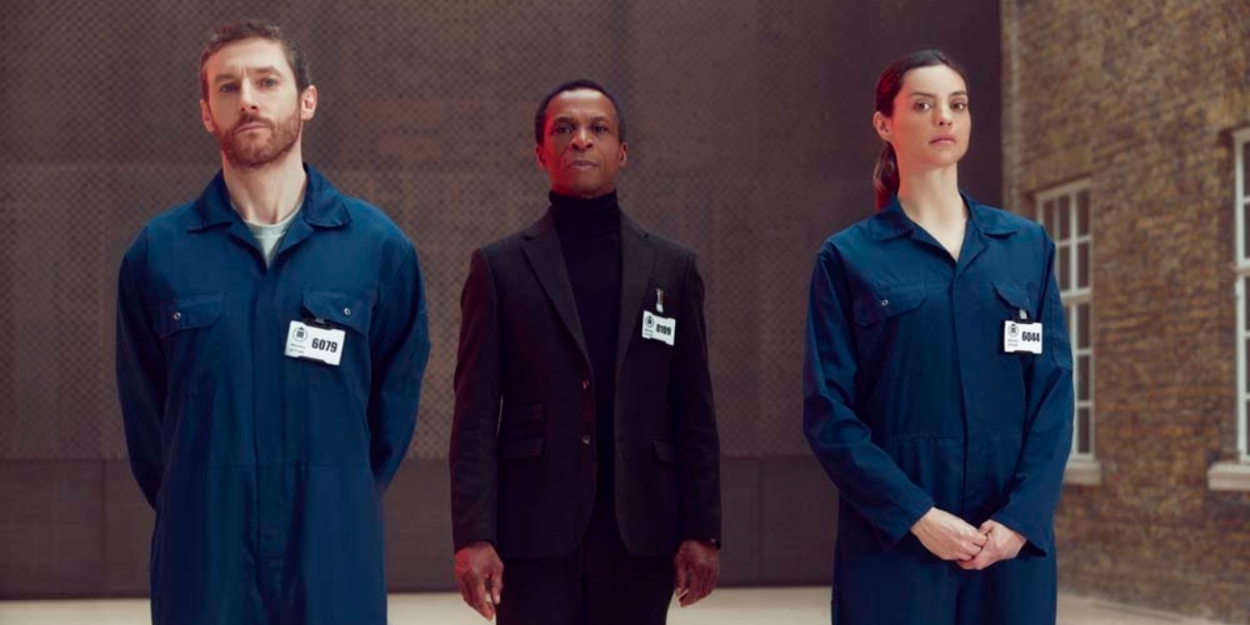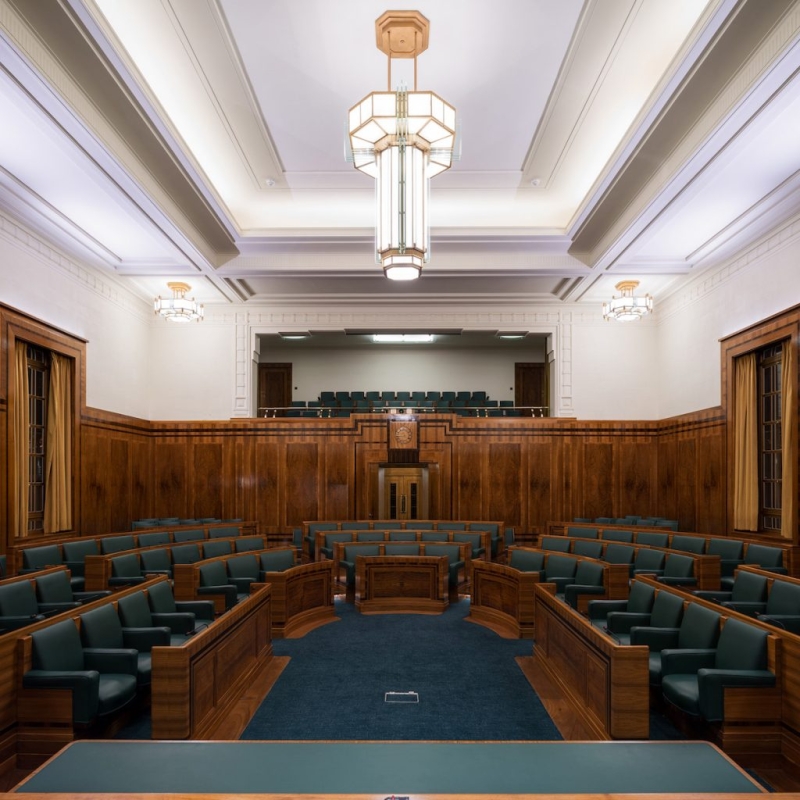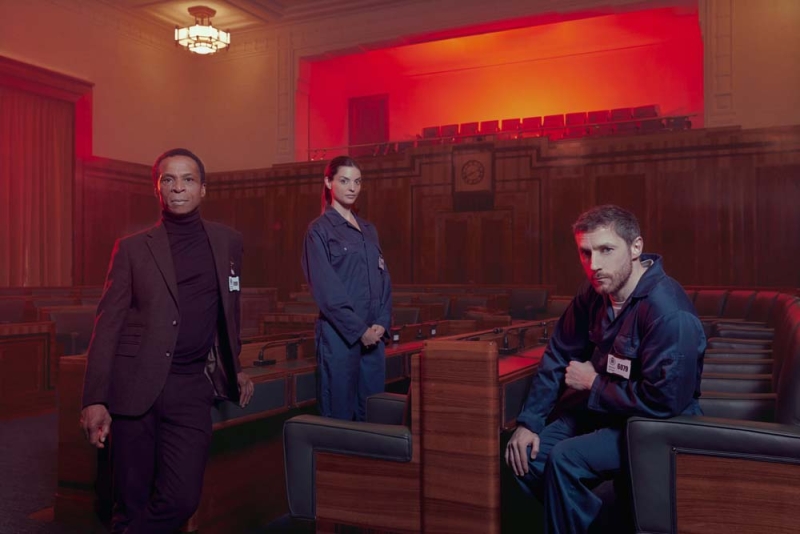Review: IMMERSIVE 1984, Hackney Town Hall
Adam Taub's immersive take goes deep into the Orwellian nightmare.

![]() The review of the revised 2024 production is here.
The review of the revised 2024 production is here.
A new immersive production based on George Orwell’s 1984 shows why it still has such a grip on the modern psyche even if it fails to deliver on its core premise.
Written in 1948, the book envisioned a heavily-surveilled society where Oceania’s ruling Party told people what to do, what to say and what to think. Ministry of Truth employee Winston Smith is tasked with re-writing history, erasing “unpersons” who betrayed the state from the records. He meets Julia and they begin an illicit love affair. Before long, they are discovered and the pair are sent to the Ministry of Love and its infamous Room 101.
Co-directed by immersive specialists Jem Wall and Richard Hahlo for Adam Taub’s Pure Expression, the show takes place in the grand art deco Hackney Town Hall. There’s a solid start with Ministry employees in navy blue overalls processing us into the main downstairs space, handing out numbered coloured badges before we get a chance to Victory Gin and Tonics or Negronis are on offer. Over in the corner, a lounge singer gives us renditions of wartime favourites ending on a rendition of the Oceania national anthem (a re-purposed “Que Sera Sera”).

Things kick off properly when we are escorted upstairs into the council chambers which stand in for the Ministry of Truth. In Taub’s telling, O’Brien (Jude Akuwudike) is always seen as a senior apparatchik, here to ensure society does not waver from the contradictory Party line: war is peace, freedom is slavery and ignorance is strength. In the first scene, he lays on thick the exposition before we fill out a personality test. That done, O’Brien lays out the surveillance footage of Winston (Declan Rogers) and Julia (Kit Reeve in her stage debut) as they meet for the first time.
The second scene is downstairs in the bar area, this time set up as a bedroom where we see the lovers conversing and conveying the depths of their feelings before O’Brien's goons sweep in to take Smith away to the Ministry of Love (i.e. the council chambers again). Crucially, the audience is given a choice here to leave the show and skip the interrogation; at the end of that harrowing section, they are asked whether they would shoot Smith.
The original storyline is boiled down to these three key set pieces with much of the connecting glue and underlying politics derived from our dusty memories of the book. Even in this redux and reduced form, Wall and Hahlo's tight direction - with welcome dollops of help from Thor McIntyre-Burnie's sound design and Jonathan Simpson's lighting - gives the bookend segments of this production a marked intensity.

The cast is small but well-honed. Akuwudike is an exciting watch as the fanatical O’Brien, driving a stodgy script forward apparently through sheer force of will. Reeve gives a nuanced and intelligent performance as the young rebel and is one to watch while, opposite her, Rogers ensures that Winston has the required emotional depth but - partly due to the underwritten nature of all three characters - doesn’t draw us in enough to really care how many volts O’Brien ultimately runs through him.
Though the music and costuming help, this promenade experience is best seen as a theatrical triptych, albeit in an unusual setting and with decent stabs at interaction. Taub’s 1984 is more immersive than, for example, Cabaret or Guys & Dolls (which isn’t saying much) but the audience have generally little say in what happens. Once past the entrance and opening scene, the world-setting is meagre and there is not much to persuade us we are in a dystopian future. Giving us the choice to leave or put Winston out of his misery are nice touches but not enough to really make us feel truly engaged throughout.
Immersive 1984 continues until 17 December.
We spoke to Jem Wall about making theatre “in the present tense”.
Photo credit: The Other Richard
Reader Reviews

Videos

